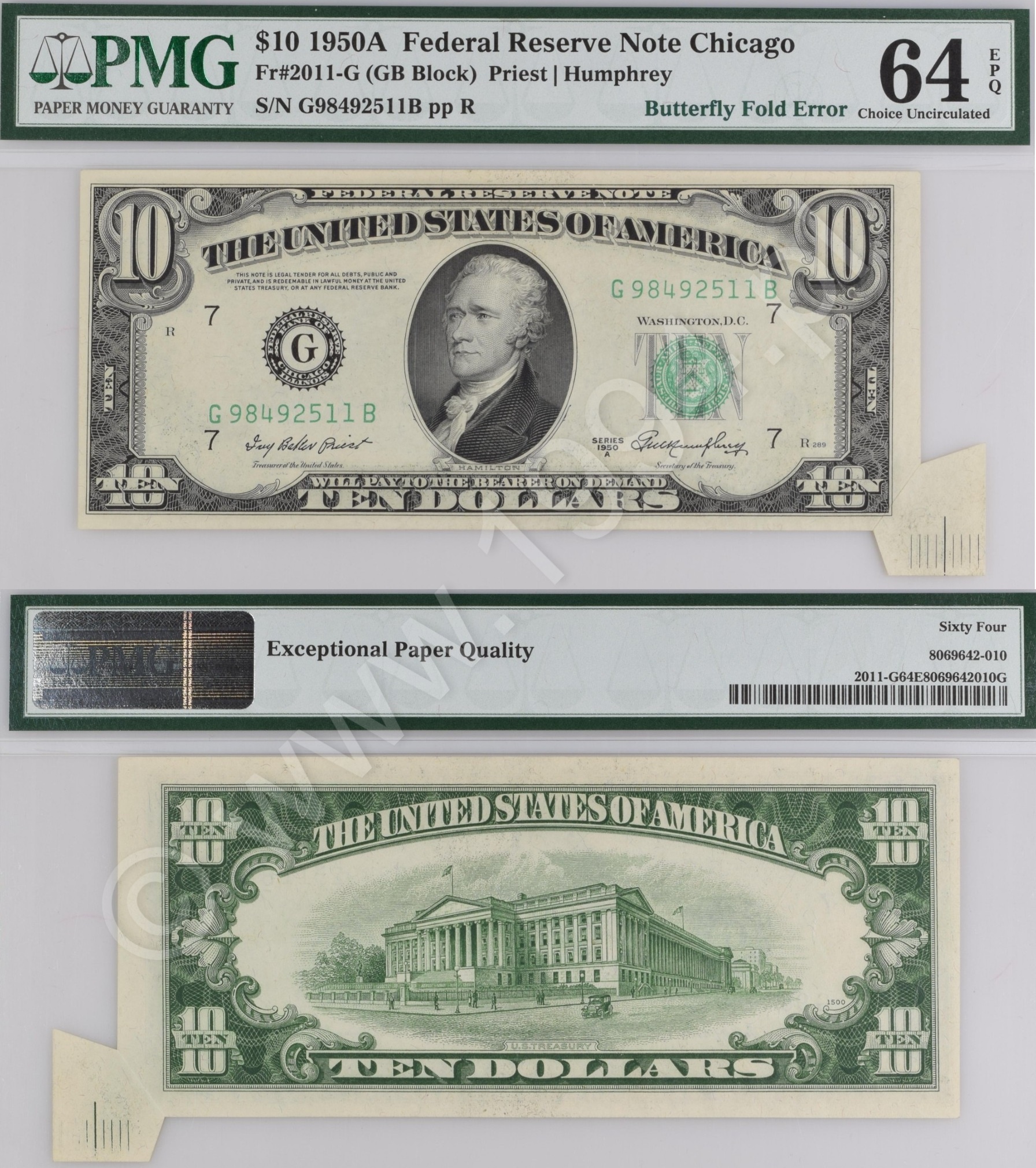Description and research notes
This 1950A 10 Dollars Federal Reserve Note from the Chicago District (Friedberg 2011-G, GB Block) displays a striking Butterfly Fold Error, one of the most visually dramatic mechanical mishaps encountered in modern U.S. currency production. During printing, a corner of the paper was unintentionally folded over, causing part of the note’s design to print on the folded flap and leaving an unprinted void once the fold was later unfolded. The result is a note with a pronounced triangular blank area extending beyond the normal border, creating the distinct 'butterfly wing' appearance that gives this error its name.
Butterfly fold errors occur during the high-speed sheet-fed printing stage, typically in the first or second pass of the intaglio press. Because the paper web is both damp and under tension, even a small curl or mechanical misfeed can cause a single corner to tuck over before impression. Such errors were usually caught and destroyed during BEP inspection, making fully released examples—especially those on higher denominations—extraordinarily rare.
This note is certified PMG 64 EPQ Choice Uncirculated, reflecting exceptional paper quality and strong originality. Despite the physical deformation caused by the fold, the note retains full embossing, bright ink, and crisp texture throughout. The obverse features Alexander Hamilton, while the reverse displays the Treasury Building in deep green ink. Both sides demonstrate how a physical obstruction in the printing process could distort an otherwise perfectly executed design.
Butterfly fold errors are treasured among collectors for their artistic unpredictability and diagnostic clarity—they offer a three-dimensional look at the precise moment when a mechanical accident became permanent history. This 1950A Chicago example stands among the finest recorded of its type and serves as an outstanding teaching piece in the study of U.S. printing anomalies.
